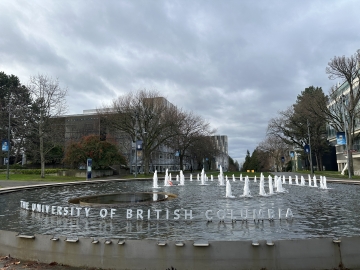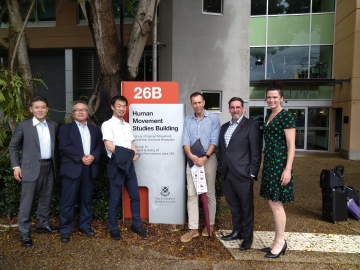
Exploring Efficacy and Physiological Mechanisms with the Theme of Preventing Metabolic Diseases through Exercise and Diet
Research on Preventing Metabolic Diseases with a Focus on Energy Metabolism
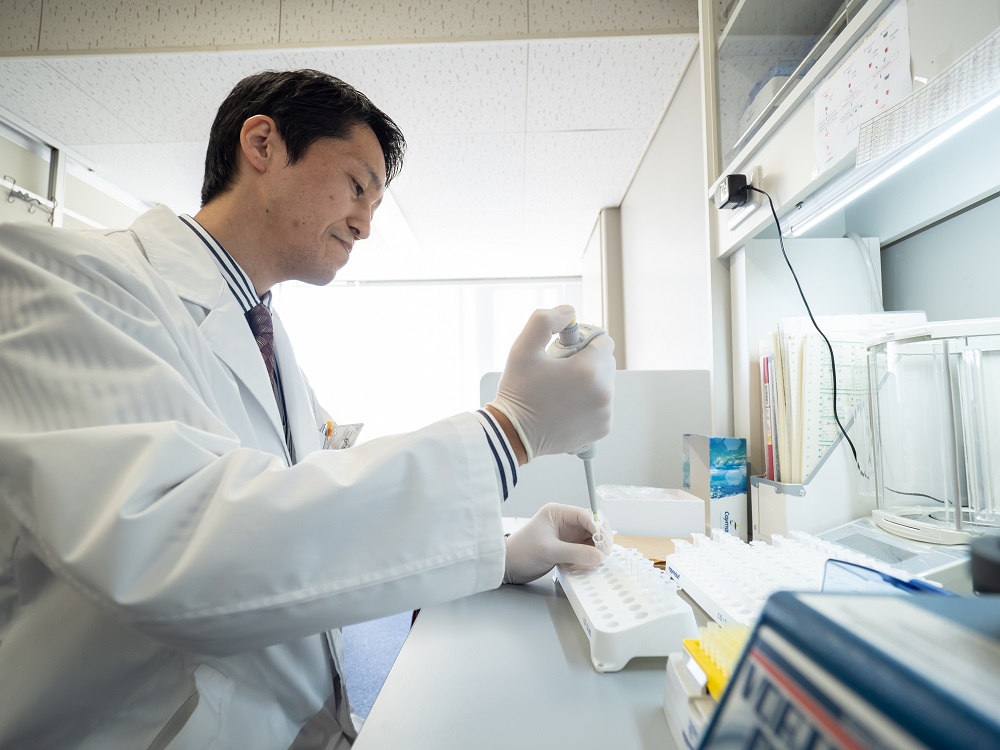 Regular physical activity (exercise and non-exercise activity thermogenesis) has been proven to be effective in preventing arteriosclerosis and other metabolic diseases. Domestic statistics, however, indicate that the percentage of people who regularly exercise as a habit remains at around 30 percent. With a theme of preventing metabolic diseases by way of physical activity and dietary habits that can easily be continued in one’s daily life, our laboratory is studying the efficacy and physiological mechanisms of those with a focus on energy metabolism. At the same time, we are also working on research from the perspective of improving athletes’ performance and conditioning. Our goal is to spread the results we obtain from basic and applied research across society.
Regular physical activity (exercise and non-exercise activity thermogenesis) has been proven to be effective in preventing arteriosclerosis and other metabolic diseases. Domestic statistics, however, indicate that the percentage of people who regularly exercise as a habit remains at around 30 percent. With a theme of preventing metabolic diseases by way of physical activity and dietary habits that can easily be continued in one’s daily life, our laboratory is studying the efficacy and physiological mechanisms of those with a focus on energy metabolism. At the same time, we are also working on research from the perspective of improving athletes’ performance and conditioning. Our goal is to spread the results we obtain from basic and applied research across society.
The Importance of Implementing Research Results in Society
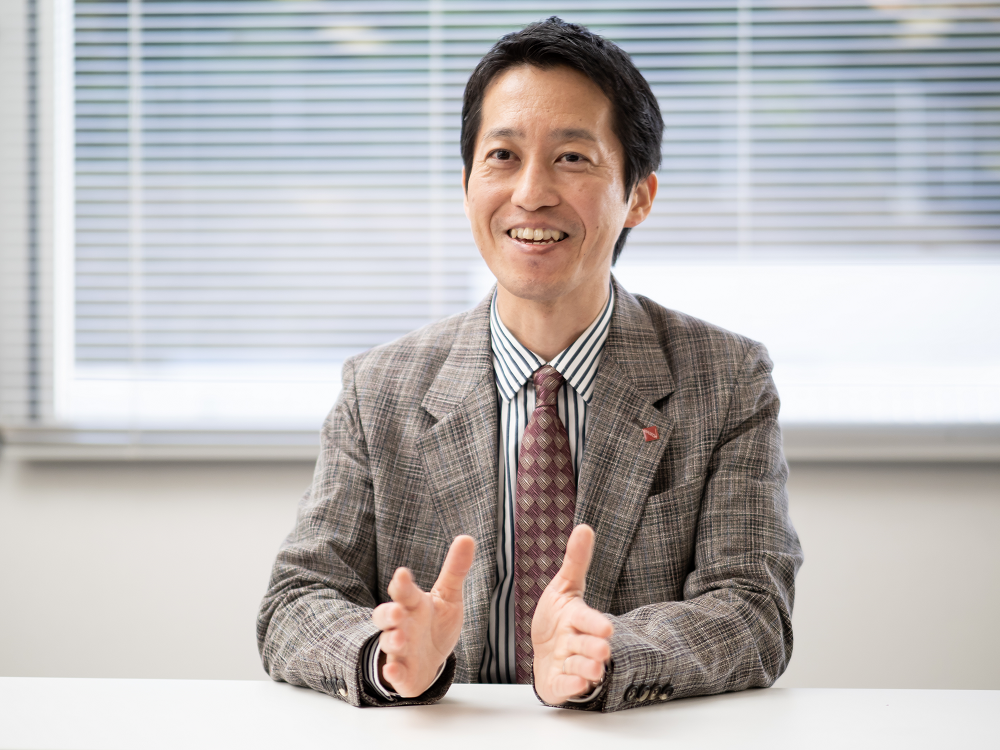 The conventional recommendation is that we should exercise continuously for a certain period of time to maintain our health. Recent research results, including those from our laboratory, have shown instead that even if exercise time is split up throughout the day, lipid metabolism still accelerates due to the total amount of exercise. This recent knowledge has also been reported in other international research groups. The World Health Organization (WHO) presented new guidelines on physical activity in 2020, and the part about a minimum of ten minutes of continuous activity per session was removed. Our laboratory is also conducting experiment-based research with awareness of such measures and policies, including these physical activity guidelines. We also have many opportunities to conduct joint research with food companies. In this research, we use the food provided by such companies to verify what timing and volume it should be consumed in to enhance the food’s usefulness to people. As a recent example, in joint research with LOTTE CO., LTD., we confirmed that chewing gum while walking increases walking distance and energy expenditure.
The conventional recommendation is that we should exercise continuously for a certain period of time to maintain our health. Recent research results, including those from our laboratory, have shown instead that even if exercise time is split up throughout the day, lipid metabolism still accelerates due to the total amount of exercise. This recent knowledge has also been reported in other international research groups. The World Health Organization (WHO) presented new guidelines on physical activity in 2020, and the part about a minimum of ten minutes of continuous activity per session was removed. Our laboratory is also conducting experiment-based research with awareness of such measures and policies, including these physical activity guidelines. We also have many opportunities to conduct joint research with food companies. In this research, we use the food provided by such companies to verify what timing and volume it should be consumed in to enhance the food’s usefulness to people. As a recent example, in joint research with LOTTE CO., LTD., we confirmed that chewing gum while walking increases walking distance and energy expenditure.
I also ask students to think from the perspective of how research results can be implemented in society. Our laboratory’s goal is “high impact research for a better life”. The impact here is not only about the quality of our research—it is also about the research’s usefulness in society. I instruct students to always think about the social significance of the research they do and to aim to contribute to high-quality journals that also incorporate that perspective.
Collaboration with National and International Researchers—Including Those from Overseas Partner Universities
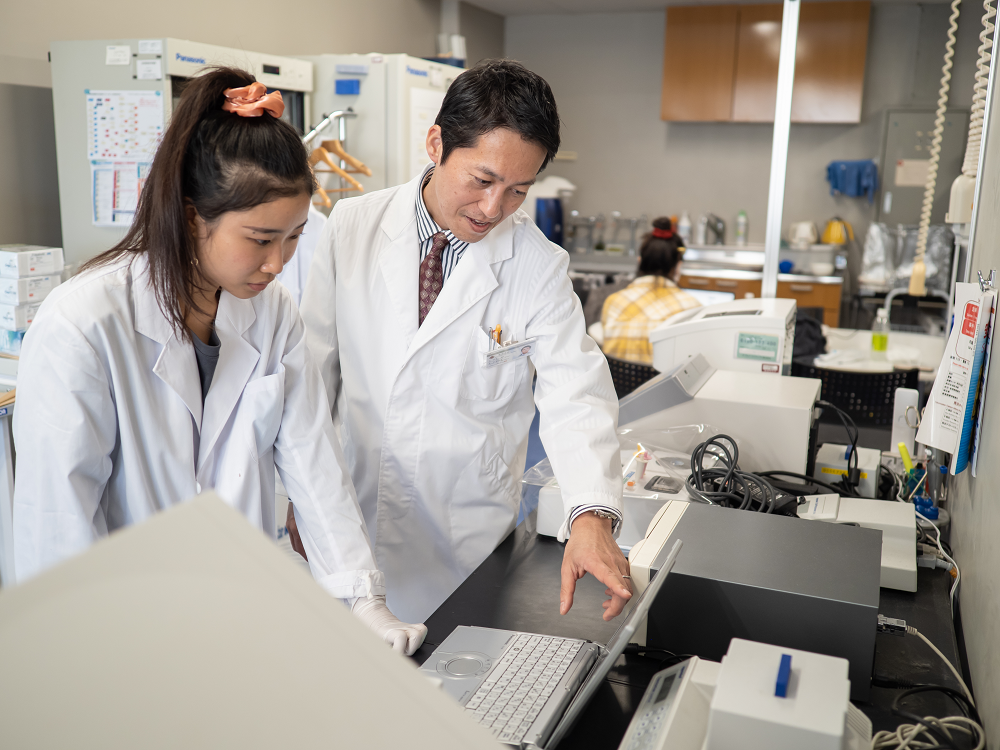 The Faculty of Sport Sciences focuses its efforts on academic and educational exchange with overseas partner universities, based on the Top Global University Project model from the Ministry of Education, Culture, Sports, Science and Technology. While we do offer traditional exchange at the laboratory level, as a university organization we are working to deepen these collaborations more comprehensively. For students, being able to further one’s research while widening his or her global perspective—without being enclosed in the narrow world of a laboratory—is a great advantage. Waseda’s strength is that it has this rich network of international academic exchange that is also structured to be ready for use in practice.
The Faculty of Sport Sciences focuses its efforts on academic and educational exchange with overseas partner universities, based on the Top Global University Project model from the Ministry of Education, Culture, Sports, Science and Technology. While we do offer traditional exchange at the laboratory level, as a university organization we are working to deepen these collaborations more comprehensively. For students, being able to further one’s research while widening his or her global perspective—without being enclosed in the narrow world of a laboratory—is a great advantage. Waseda’s strength is that it has this rich network of international academic exchange that is also structured to be ready for use in practice.
I think the main driving force for me to continue research projects centered on continual experiments is that I truly feel that research is fun. I also think that working hard together with students of diverse nationalities creates an exciting environment, and that plus the opportunities for international academic exchange also help. I hope that students will fully equip themselves with academic etiquette and work on research while exuding their own creativity and individuality.
PROFILE
Professor Miyashita specializes in exercise metabolism, exercise nutrition, and health science. He received his Ph.D. from the Loughborough University School of Sport and Exercise Sciences in the UK. He held various positions, including assistant professor at the Graduate School of Sport Sciences at Waseda University, associate professor at Tokyo Gakugei University, and associate professor at the Faculty of Sport Sciences at Waseda University, before taking up his present position in 2021.

